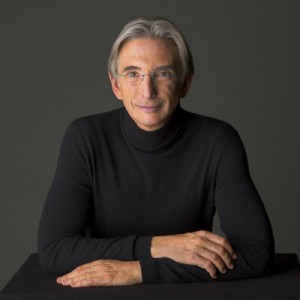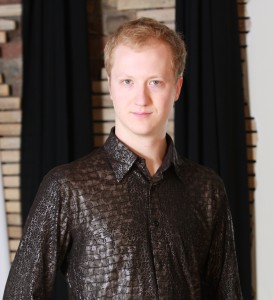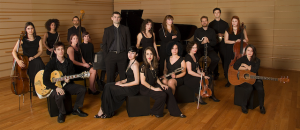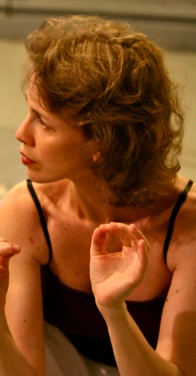Sixty Postwar Pieces to Study
Recently, a couple of the undergraduate composers in the program at Westminster Choir College asked me for lists of postwar pieces to study. Given the vocal and choral emphasis in our program, I’ve compiled the list below to provide a different vantage point. Hence the emphasis on instrumental music and a preponderance of post-tonal composers that they might not encounter when learning their own recital repertoire. Given a different student population, composers like Jennifer Higdon, Christopher Theofanidis, and Donnacha Dennehy could just as likely appear on a listening list such as this.
And, of course, it is frustrating what one must leave out to keep a list manageable in size. Indeed, I’ve had to leave off a number of sentimental favorites. Note that I am not attempting to give them the “greatest hits” of the past sixty-five years. Instead I strove for a diversity of selections, both watershed masterworks and vibrantly interesting pieces that merit attention, even if they may not be the first ones that come to mind for the given composer. On a different day, we could come up with sixty different pieces: a composer must be prepared for a lifetime of listening, score study, and learning. Even after that, they must also be humbled by the fact that they will only get to a fraction of all the good stuff out there!
Let’s say that an undergraduate composer began working with this list or a similar one at the beginning of their junior year; listening to and, if possible, studying the score for one of these pieces every week. Between their own performance experiences, WCC’s theory and history courses, and this survey of recent works, by the time that they were ready to consider applying to graduate programs in their senior year, they would have a decent grounding in the repertoire.
1- Adams, John C. Nixon in China (1987)
2- Adams, John C. Chamber Symphony (1992)
3- Adams, John Luther. Red Arc/Blue Veil (2002)
4- Andriessen, Louis. La Passione (2002)
5- Babbitt, Milton. Philomel (1964)
6- Babbitt, Milton. Arie da Capo (1974)
7- Berio, Luciano. Circles (1960)
8- Birtwistle, Harrison. Secret Theatre (1984)
9- Boulez, Pierre. Le marteau sans maître (rev. 1957)
10- Boulez, Pierre. Répons (1984)
11- Cage, John. Sonatas and Interludes for Prepared Piano (1948)
12- Cage, John. Concert for Piano and Orchestra (1958)
13- Carter, Elliott. String Quartet No. 1 (1951)
14- Carter, Elliott. String Quartet No. 5 (1995)
15- Chin, Unsuk. Akrostischen-Wortspiel (1993)
16- Crumb, George. Ancient Voices of Children (1970)
17- Czernowin, Chaya. String Quartet (1995)
18- Davies, Peter Maxwell. Eight Songs for a Mad King (1969)
19- Feldman, Morton. Rothko Chapel (1970)
20- Feldman, Morton. For Samuel Beckett (1987)
21- Ferneyhough, Brian. Bone Alphabet (1991)
22- Ferneyhough, Brian. Terrain (1992)
23- Foss, Lukas. Echoi (1963)
24- Glass, Philip. Satyagraha (1980)
25- Grisey, Gérard. Les espaces acoustiques (1985)
26- Haas, Georg Friedrich. In Vain (2002)
27- Harrison, Lou. La Koro Sutro (1973)
28- Kurtág, György. Kafka-Fragmente (1986)
29- Kurtág, György. Stele (1994)
30- Knussen, Oliver. Where the Wild Things Are (1983)
31- Lachenmann, Helmut. Das Mädchen mit den Schwefelhölzern (1990)
32- Lang, David. Little Matchgirl Passion (2007)
33- Ligeti, Győrgy. Atmosphères (1961)
34- Ligeti, Győrgy. Violin Concerto (1993)
35- Lim, Liza. City of Falling Angels (2007)
36- Marshall, Ingram. September Canons (2003)
37- Messiaen. Olivier. Éclairs sur l’au-delà… (1991)
38- Monk, Meredith. Songs of Ascension (2008)
39- Nancarrow, Conlon. Three Canons for Ursula (1989)
40- Nono, Luigi. …sofferte onde serne… (1976)
41- Pärt, Arvo. Fratres (1976)
42- Penderecki, Krzysztof. Threnody to the Victims of Hiroshima (1960)
43- Reich, Steve. Music for Eighteen Musicians (1976)
44- Reich, Steve. Different Trains (1988)
45- Riley, Terry. In C (1964)
46- Saariaho, Kaija. L’amour de loin (2000)
47- Scelsi, Giacinto. Prânam 2 (1973)
48- Sciarrino, Salvatore. Vento D’Ombra (2005)
49- Schoenberg, A Survivor from Warsaw (1947)
50- Shapey, Ralph. Millenium Designs (2000)
51- Stravinsky, Igor. Variations (Aldous Huxley in Memoriam) (1964)
52- Stockhausen, Karlheinz, Kontakte (1960)
53- Takemitsu, Tōru. From me flows what you call Time (1990)
54- Turnage, Mark-Anthony. Blood on the Floor (1996)
55- Xenakis, Iannis. Pléïades (1978)
56- Xenakis, Iannis. Tetras (1983)
57- Varèse, Edgard. Poème électronique (1958)
58- Wolpe, Stefan. Quartet for Trumpet, Tenor Saxophone, Piano, & Percussion (1954)
59- Wuorinen, Charles. A Reliquary for Igor Stravinsky (1975)
60- Young, LaMonte. The Well-Tuned Piano (1964-present)




